Although the new school year is taking place in a favorable context, the education sector is also facing many difficulties and challenges that need to be resolved. On the occasion of the new school year, CAND Newspaper reporters interviewed Minister of Education and Training Nguyen Kim Son on this issue.
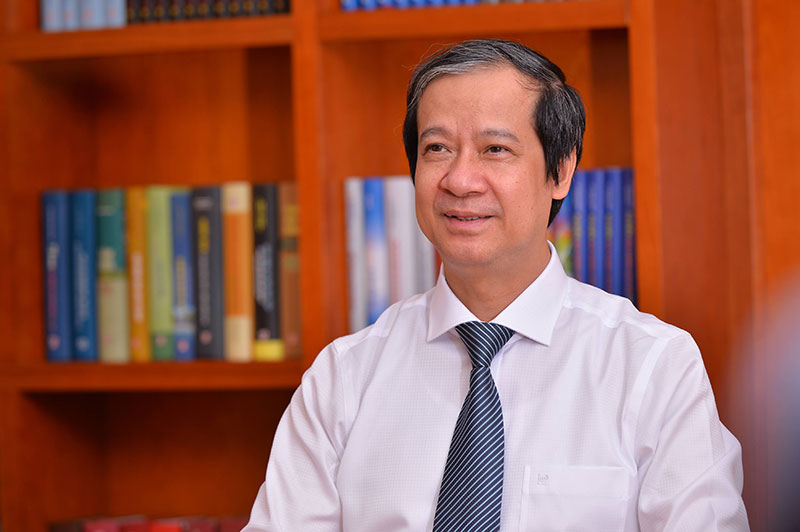
Reporter: Minister Nguyen Kim Son, the 2025-2026 school year has begun. Could you share the opportunities and challenges of the industry in the new school year?
Minister Nguyen Kim Son: The 2025-2026 school year is a very important school year with many important tasks to be done and many opportunities for innovation. This school year, the education sector is facing unprecedented opportunities; never before have education and training received as much attention and expectation from the Party and the State as they do today. The most important of these is the recent issuance of Resolution 71 by the Politburo on breakthroughs in education and training development. This is an important political foundation to further promote the fundamental and comprehensive innovation of education and training that has been established since Resolution 29 and continued to be emphasized in Conclusion 91.
Resolution 71 affirms that education is always an integral and decisive element in the country's development; showing the consistency of the viewpoint that education and training is the top national policy, deciding the future of the nation. For the entire education sector, this is a great opportunity to make a breakthrough, to affirm the decisive position of education in the country's development.
Along with that, a national target program on education and training development is being built; important laws on education such as the Law on Education, the Law on Higher Education and the revised Law on Vocational Education are expected to be issued this year, creating a solid foundation for operating a modern, synchronous and effective education system. Digital transformation, the application of artificial intelligence and STEM education are also opening up opportunities for education to enter a period of quality improvement and comprehensive innovation.
Besides opportunities, the education sector also faces many challenges. The operation of a two-tier local government model, especially at the commune level, places high demands on managing changes in organization, personnel and apparatus. The issues of educational equity; extra teaching and learning; teacher recruitment and rotation; and universalization are also challenges that the sector must resolutely address. In addition, absorbing huge investment resources in the coming time, ensuring efficiency and compliance with regulations also requires great efforts and hard work. In that context, the keyword for this school year will be “Implementation”.
That is to focus on implementing well the Party's guidelines and policies, the State's laws on education as well as the 10 key tasks and solutions for the 2025-2026 school year of the Education sector. That is the way for the whole sector to inherit and promote the achievements of the past 80 years, overcome existing shortcomings and limitations, and open up new paths for Vietnamese education in the coming time.
Education is a career of a hundred years, requiring vision, perseverance, a sense of fairness and the highest responsibility. I call on the entire industry, from managers to teachers, staff, and all students to prepare the best mindset, spirit and conditions, to unite and join forces, so that the new school year becomes a busy but joyful and successful one.
Reporter: Could you please share more about the fundamental solutions to solve the problem of teacher shortage, especially in the context of the Law on Teachers which will take effect from January 1, 2026, with an important breakthrough of giving the education sector the initiative in recruiting and mobilizing teachers?
Minister Nguyen Kim Son: In the 2022-2026 period, the Education sector will be supplemented with 65,980 positions by the Politburo. In the two school years of 2022-2023 and 2023-2024, the country will recruit more than 40,000 teachers. However, due to the continuous increase in the number of students and classes, the demand for teachers has also increased sharply, so many localities still lack teachers. The main reason is due to limited recruitment sources. In some subjects such as Information Technology, Foreign Languages, and Arts, the pedagogical sector is difficult to recruit because teachers' income is still low. In addition, the process of allocating and recruiting positions in many localities is still slow and prolonged.
To solve this problem, the Ministry of Education and Training has been implementing many solutions such as: Directing training institutions to open major codes, train teachers according to the actual needs of localities, especially specific subjects; requiring localities to recruit enough assigned staff; directing localities to review and arrange the school network; piloting the autonomy mechanism in some public preschools and general schools; promoting socialization; having policies to attract and support teachers, and arranging funding to implement teacher contracts according to regulations.
In particular, immediately after the National Assembly passed the Law on Teachers, the Ministry of Education and Training proactively developed a system of documents guiding its implementation. In particular, regarding the recruitment of teachers, the Ministry of Education and Training is developing a Circular with the direction of assigning the Department of Education and Training to preside over the implementation, or advising the Provincial People's Committee to decentralize and delegate authority in accordance with local realities. The above approach ensures the implementation of the policy of reducing intermediaries, synchronizing recruitment quality, saving costs, increasing opportunities for participants in recruitment; at the same time, contributing to overcoming the situation of local surplus and shortage of teachers as well as ensuring the structure of the team according to grade level, subject, and educational activities.
In addition, the Ministry of Education and Training is developing a Decree detailing a number of articles of the Law on Teachers, including regulations on the content and form of teacher recruitment. As expected, the recruitment will include 2 rounds of exams, compatible with current regulations on civil servant recruitment. This is expected to be an important innovation, aiming to overcome previous limitations when applying the general mechanism for civil servants without taking into account the specific characteristics of the teaching profession.
In addition, the Ministry of Education and Training is also finalizing a draft of detailed regulations on salaries, allowances and policies to attract and support teachers. Accordingly, it is expected that the basic salary of all teachers will increase, by at least about 2 million VND, and at most up to 5-7 million VND/person/month. This increase is only calculated on the basic salary, not including other allowances.
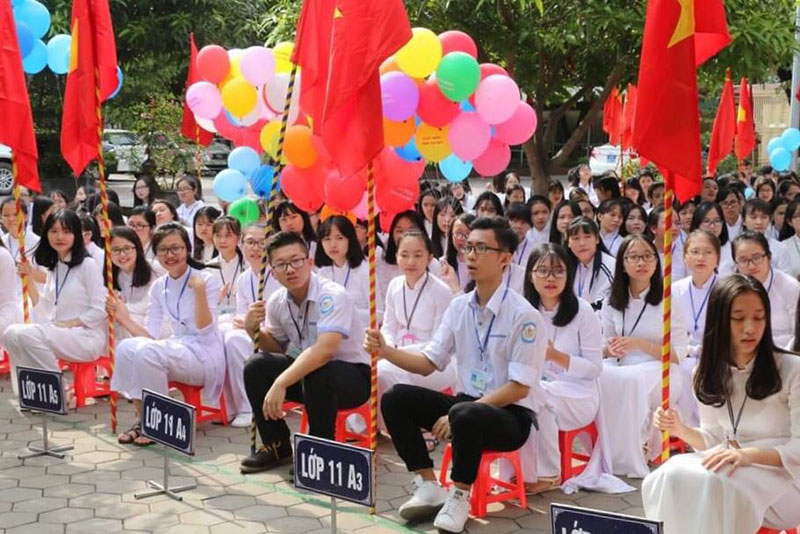
Reporter: After operating the two-level local government, the country has 3,321 communes, wards, and special zones. However, localities currently do not meet the number of civil servants in charge of education and training. What solutions will the Ministry of Education and Training have to overcome this difficulty, Minister?
Minister Nguyen Kim Son: To ensure that educational activities are not disrupted in the context of two-level local government, the Ministry of Education and Training has implemented many synchronous solutions. Regarding institutional improvement, the Ministry has developed and issued 2 decrees and 6 circulars regulating decentralization, delegation of authority, and division of state management authority in the field of education; provided professional guidance, organized seminars, established hotlines, received information, and resolved difficulties and obstacles of localities; and organized 6 inspection teams in 15 provinces on this issue.
In the coming time, the Ministry of Education and Training will continue to review legal documents; strengthen professional guidance; complete the industry data system, ensure connectivity and synchronization; and continue to accompany and support localities in implementing decentralized and delegated tasks.
In particular, to effectively implement educational tasks in the 2025-2026 school year in the new context, the Ministry of Education and Training also noted that the provincial People's Committees should promptly advise competent authorities to complete legal institutions, build an effective coordination mechanism between the provincial and communal levels; issue clear regulations on the functions, tasks, and organizational structure of the Department of Education and Training and the Department of Culture and Social Affairs at the communal level, and at the same time assign staffing targets and the number of labor contracts to educational institutions.
PV: In the 2025-2026 school year, the Ministry of Education and Training will conduct a comprehensive evaluation of the 2018 General Education Program after one implementation cycle. What will the evaluation focus on, Minister?
Minister Nguyen Kim Son: The first batch of students graduating from high school under the 2018 General Education Program has shown many positive points but there are also some shortcomings. In the 2025-2026 school year, the Ministry of Education and Training will conduct a comprehensive assessment of the 2018 General Education Program after an implementation cycle to clarify the level of achievement in developing students' qualities and abilities; point out advantages, limitations, causes and propose solutions for adjustment, ensuring the Program is substantial, effective and sustainable. The assessment focuses on: Facilities, teaching equipment, teaching staff and management staff, training quality, suitability of textbooks, effectiveness of innovative methods, testing and assessment; at the same time, consider selective teaching in high school and career guidance activities from middle school to ensure students' real right to choose.
The Ministry of Education and Training also coordinates with ministries, branches, localities, domestic and foreign experts to conduct comprehensive surveys, research, and assessments. The consistent orientation is to adhere to the goals set by the Party and the National Assembly, which is to comprehensively develop students' qualities and abilities, in line with the requirements of human resource training for the new period. The spirit is to look straight at the truth, evaluate objectively, and make timely adjustments, all for the sake of students.
Reporter: In the 2025-2026 school year, teaching 2 sessions/day will be implemented at all 3 levels of education in places with sufficient conditions and without collecting fees from students. What solutions will the Ministry of Education and Training have to widely and effectively implement teaching 2 sessions/day as well as to effectively manage extra teaching and learning, Minister?
Minister Nguyen Kim Son: Implementing Directive No. 17 of the Prime Minister on teaching 2 sessions/day, the Ministry of Education and Training has directed schools to develop educational plans clearly showing the plan to mobilize and use resources for implementation in qualified places. The organization of the second session, including extra classes for 3 subjects as prescribed, is carried out in accordance with Directive 17. Funding for the second session is mainly guaranteed from the State budget according to the Prime Minister's direction. Socialized sources are implemented according to current regulations.
In the coming time, the Ministry of Education and Training will coordinate with the Ministry of Finance and localities to develop specific mechanisms and policies on mobilizing funds for the implementation of teaching 2 sessions/day. Regarding the management of extra teaching and learning, the Ministry of Education and Training continues to adhere to the viewpoint that "extra learning can bring about the consolidation of knowledge, but brings little value to human development".
The profound consequences of the widespread situation of extra teaching and learning require continued drastic rectification. Therefore, in the 2025-2026 school year, the Ministry of Education and Training will continue to direct and urge localities to issue regulations on the management of extra teaching and learning to enhance the responsibility of the government, while requiring educational institutions to effectively implement the General Education Program.
PV: Thank you very much, Minister!
Source: https://cand.com.vn/giao-duc/nhieu-co-hoi-lon-de-giao-duc-but-pha-i780367/



![[Photo] Prime Minister Pham Minh Chinh chairs the 20th meeting of the Steering Committee for important national projects and works](https://vphoto.vietnam.vn/thumb/1200x675/vietnam/resource/IMAGE/2025/9/10/e82d71fd36eb4bcd8529c8828d64f17c)
![[Photo] Giant pipeline leading water to West Lake, contributing to reviving To Lich River](https://vphoto.vietnam.vn/thumb/1200x675/vietnam/resource/IMAGE/2025/9/10/887e1aab2cc643a0b2ef2ffac7cb00b4)



![[Photo] President Luong Cuong hosts state reception for Governor-General of Australia](https://vphoto.vietnam.vn/thumb/1200x675/vietnam/resource/IMAGE/2025/9/10/a00546a3d7364bbc81ee51aae9ef8383)




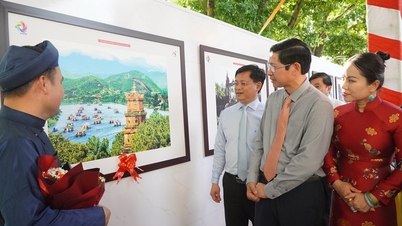

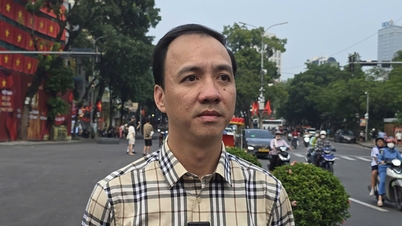








































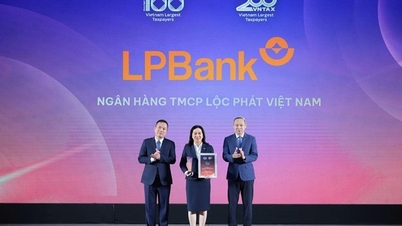
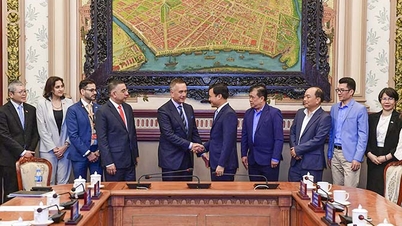
















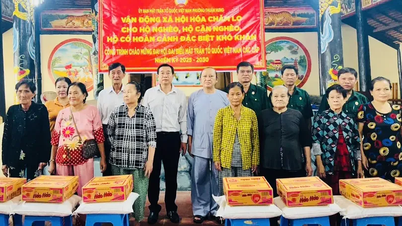

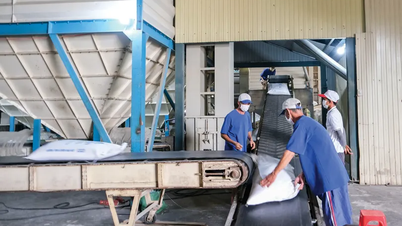





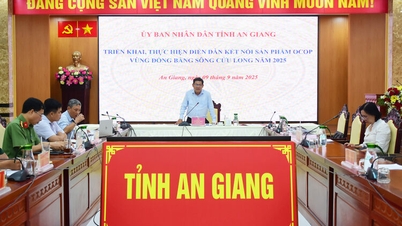











Comment (0)